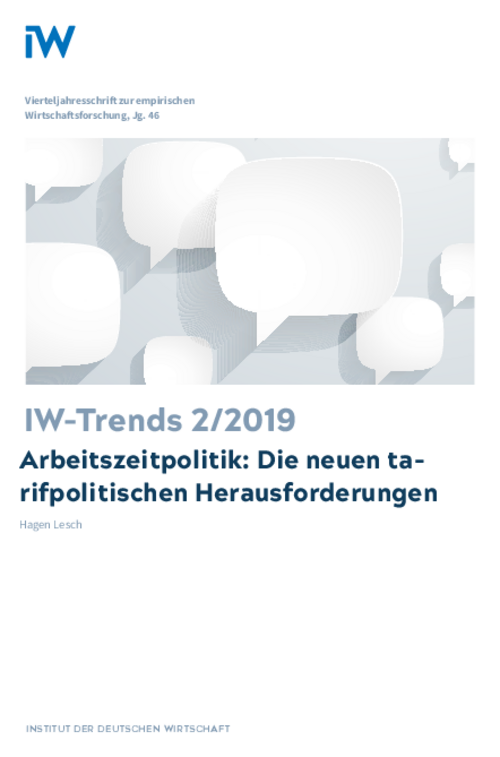Working time issues are back on the collective bargaining agenda. On the one hand, employees are striving for more working time sovereignty, on the other, companies are having to be increasingly flexible in their response to their customers’ demands.

Working Time Policy: The New Collective Bargaining Challenges
IW-Trends

Working time issues are back on the collective bargaining agenda. On the one hand, employees are striving for more working time sovereignty, on the other, companies are having to be increasingly flexible in their response to their customers’ demands.
This can lead to conflicts which it is primarily the responsibility of the bargaining parties at the establishment level to solve. Unions and employers’ associations can facilitate this by establishing framework agreements which do not restrict establishments’ room to negotiate. The first steps in this direction have already been taken in the form of working time arrangements within the framework of so-called demographic collective agreements. These are now being followed by option models that offer a choice between higher pay and more leisure time. A further step would be to merely specify a working time framework in collective agreements, leaving companies to organize their working hours with their employees individually and freely. The less bureaucratically this can be implemented, the greater companies’ acceptance of collective bargaining rules should be.

Hagen Lesch: Arbeitszeitpolitik – Die neuen tarifpolitischen Herausforderungen
IW-Trends

More on the topic

The 9th IW Survey of Further Training
In 2016 some 85 per cent of companies in Germany were active in continuing vocational training, using a broad mix of methods.
IW
Has the German Economy Reached its Limit?: Skilled Labour Shortages as a Brake on Growth
The German economy is performing significantly better than was expected in the first few months of this year. During the course of 2017, certain early fears – especially of a weakening of the global economy due to increasing protectionism – have proved ...
IW